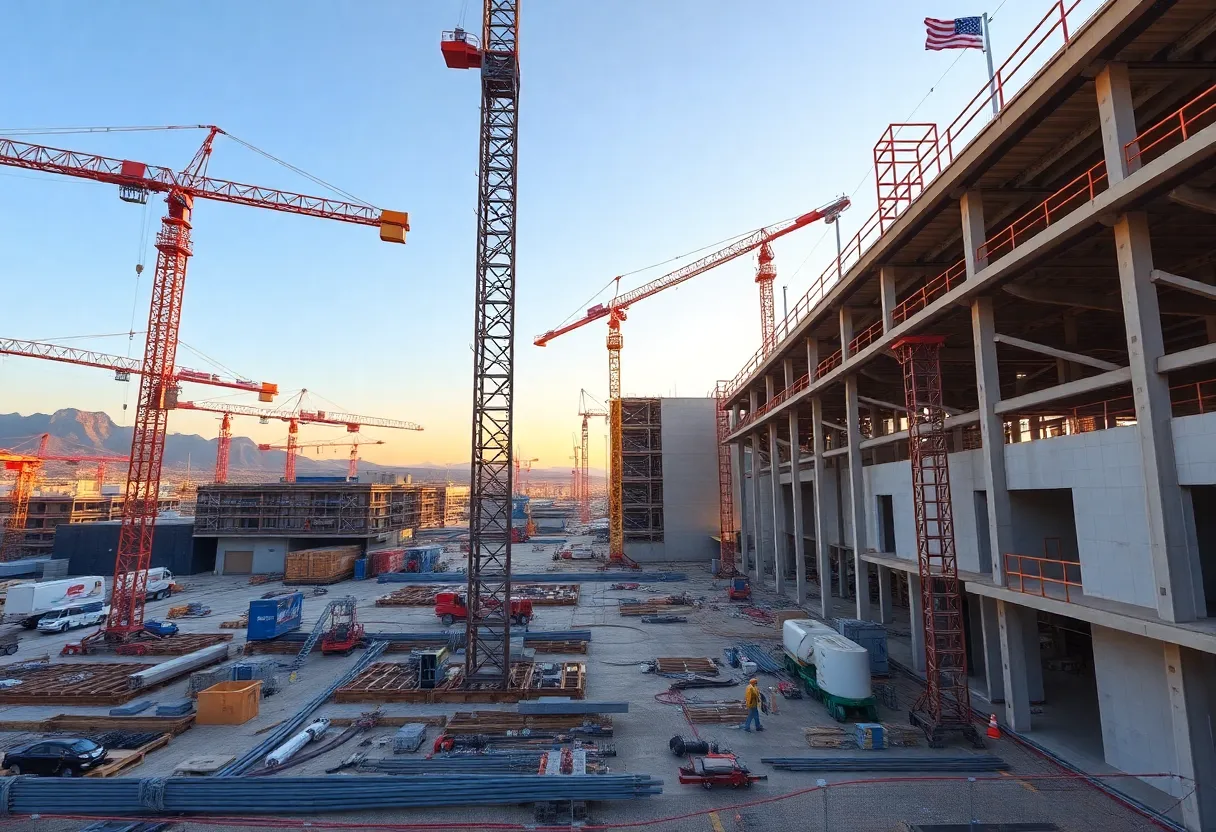News Summary
The Taiwan Semiconductor Manufacturing Company (TSMC) is rapidly becoming a major employer in Phoenix, Arizona, with plans for a campus that will create thousands of high-paying jobs. While TSMC’s initial investment has surged to $165 billion, challenges remain in workforce development, particularly in finding qualified technicians. Community colleges are stepping up to fill this gap, introducing programs tailored for the semiconductor industry. As TSMC integrates both Taiwanese and American workplace cultures, the economic impact of this expansion is expected to be significant for the region’s future.
Phoenix, Arizona – The Taiwan Semiconductor Manufacturing Company (TSMC) is rapidly establishing itself as one of the largest foreign-headquartered employers in the United States. The completion of TSMC’s Phoenix campus, scheduled to span over a decade, is projected to inject significant high-paying jobs and economic spending that would have likely occurred in other regions.
Currently, TSMC’s first fabrication plant in Phoenix is operational and employs approximately 3,000 people. By the end of the decade, this number is expected to double to around 6,000. The total investment in the Phoenix area has also escalated dramatically, from an initial $12 billion to a staggering $165 billion, reflecting the increasing importance of TSMC’s operations in the semiconductor industry.
Although TSMC’s expansion is fostering economic growth in Arizona, the semiconductor industry faces significant workforce challenges. There is a reported shortfall of qualified labor to meet TSMC’s substantial growth plans. The company is primarily seeking engineers, who are required to hold college degrees, as well as technicians, for whom a degree may not be necessary. However, to address the technician shortage, TSMC launched an apprenticeship program last year, aimed at training individuals for critical roles within the company.
Workforce Development Initiatives
Recognizing this workforce gap, local community colleges are reacting by implementing programs designed to prepare students for careers in the semiconductor industry. Institutions like Estrella Mountain Community College are developing workforce pipelines to support TSMC’s hiring needs. Additionally, various local initiatives are introducing learn-and-earn programs, allowing individuals who may not afford traditional schooling to gain entry-level job opportunities in the technology sector.
Cultural Integration Challenges
As TSMC builds its workforce, the blending of Taiwanese and American workplace cultures presents challenges. Reports indicate that there are cultural clashes due to differing expectations around work behavior and company values. TSMC emphasizes qualities such as perfection, humility, and a company-first mindset, which may differ from the typical American corporate culture. The adjustment has resulted in initial surprises for American workers regarding the intensity of TSMC’s workplace ethos.
However, as the workforce becomes more acquainted with TSMC’s rigorous environment, there is growing understanding that these high-demand positions offer substantial rewards. For instance, semiconductor technician roles begin at annual salaries in the $40,000 range and can rise to about $70,000 for those with more experience, making these positions attractive for prospective employees.
Significance of the Semiconductor Industry
The semiconductor sector is considered vital for economic competitiveness and national security, a sentiment echoed during former President Trump’s announcement of TSMC’s expansion into the U.S. labor market. Currently, the U.S. is projected to need approximately 460,000 skilled workers in the semiconductor field by the end of the decade, emphasizing the ongoing demand for a qualified labor force.
While TSMC has found success in attracting skilled labor, the majority of potential job candidates are expected to be technicians who do not hold four-year degrees. This demographic is essential as TSMC seeks to ensure a diverse and capable workforce that reflects both American and Taiwanese traditions within the workplace, evidenced by cultural decorations and joint celebrations of key festivals.
Future Prospects
As TSMC expands its footprint in the U.S., the company continues to navigate the complexities of workforce integration and cultural coexistence. With a commitment to hiring a diverse range of employees, TSMC currently staffs its facility with over half of its workforce comprised of Americans, while the remainder hail from Taiwan. English serves as the primary business language, facilitating communication across cultural lines.
In summary, while TSMC’s expansion in Phoenix heralds a substantial boost for Arizona’s economy, it simultaneously brings to light the pressing workforce challenges that the semiconductor industry faces. The proactive steps taken by TSMC, community colleges, and local initiatives indicate a concerted effort to equip the future workforce with the necessary skills to thrive in this rapidly evolving industry.
Deeper Dive: News & Info About This Topic
- Axios: TSMC Arizona Hiring Workforce Growth
- Wikipedia: Semiconductor Industry
- AZ Central: TSMC Will Need to Fill Thousands of Jobs
- Google Search: TSMC Workforce Challenges
- Tom’s Hardware: 50 Percent of TSMC’s Arizona Employees Are from Taiwan
- Encyclopedia Britannica: Semiconductor
- Fox 10 Phoenix: TSMC Announces 100B More Phoenix
- Google News: TSMC Arizona Expansion

Author: STAFF HERE PHOENIX WRITER
The PHOENIX STAFF WRITER represents the experienced team at HEREPhoenix.com, your go-to source for actionable local news and information in Phoenix, Maricopa County, and beyond. Specializing in "news you can use," we cover essential topics like product reviews for personal and business needs, local business directories, politics, real estate trends, neighborhood insights, and state news affecting the area—with deep expertise drawn from years of dedicated reporting and strong community input, including local press releases and business updates. We deliver top reporting on high-value events such as the Waste Management Phoenix Open, Cactus League Spring Training, and Arizona State Fair. Our coverage extends to key organizations like the Greater Phoenix Chamber of Commerce and Visit Phoenix, plus leading businesses in technology and healthcare that power the local economy such as Intel and Banner Health. As part of the broader HERE network, including HERETucson.com, we provide comprehensive, credible insights into Arizona's dynamic landscape.





